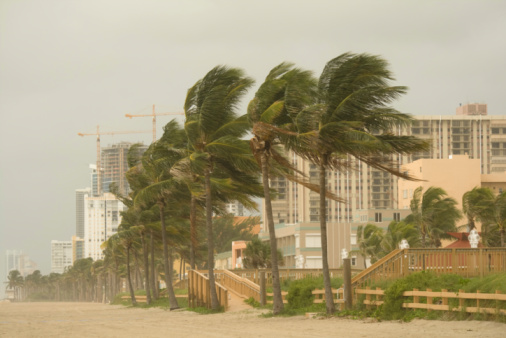Foreclosure activity in the United States rose by 2% in July, a move so small that it does not say much about the direction of the housing industry. The foreclosure situation remains dire in several states, led by Florida, where the market was particularly battered during the recession.
According to RealtyTrac, it,
[T]oday released its U.S. Foreclosure Market Report for July 2014, which shows foreclosure filings — default notices, scheduled auctions and bank repossessions — were reported on 109,434 U.S. properties in July, an increase of 2 percent from the previous month but still down 16 percent from a year ago. The report also shows one in every 1,203 U.S. housing units with a foreclosure filing during the month.
Most large metro areas did well, with only five of the largest 20 markets posting foreclosure increases. Worst among these:
The Houston metro area posted the biggest annual increase in foreclosure activity from a year ago among the 20 largest metro areas, up 66 percent. The increase in Houston came on the heels of 23 consecutive months of decreasing foreclosure activity on an annual basis and was driven primarily by a 116 percent jump in scheduled foreclosure auctions — the first public notice starting the foreclosure process in Texas.
Washington, D.C., documented the second highest annual increase in foreclosure activity in July, up 24 percent from a year ago. July marked 14 of the last 17 months where DC metro area foreclosure activity has increased on an annual basis.
While most states, including Florida, showed some in improvement, Florida’s housing market remains in deep distress. According to the report:
Florida foreclosure activity decreased 30 percent on a year-over-year basis in July — the 12th consecutive month with an annual decrease — but the state still posted the nation’s highest state foreclosure rate for the 10th consecutive month. One in every 469 Florida housing units had a foreclosure filing in July, more than two and a half times the national average.
The “one in every 469” shows how far Florida is from anything close to a full recovery from the bursting of the housing bubble in 2007, 2008, and 2009.
READ MORE: Cities Running Out of Water
Foreclosure rates of four other states were much higher than the national rate:
Maryland foreclosure activity in July increased 5 percent from the previous month and was up 9 percent from a year ago — continuing a two-year trend in rising foreclosure activity in the state. One in every 553 Maryland housing units had a foreclosure filing during the month, the nation’s second highest state foreclosure rate for the sixth consecutive month.
Following nine consecutive months of annual decreases, Nevada foreclosure activity in July increased 15 percent from a year ago and was up 36 percent on a month-over-month basis, boosting the state’s foreclosure rate to third highest nationally after ranking sixth highest in June. One in every 639 Nevada housing units had a foreclosure filing during the month.
Illinois foreclosure activity decreased 9 percent from a year ago in July, the 20th consecutive month where the state’s foreclosure activity has decreased on an annual basis, but Illinois still posted the nation’s fourth highest foreclosure rate: one in every 747 housing units with a foreclosure filing.
Ohio foreclosure activity decreased 24 percent from a year ago in July, the 11th consecutive month where the state’s foreclosure activity has decreased on an annual basis, but Ohio still posted the nation’s fifth highest foreclosure rate: one in every 839 housing units with a foreclosure filing.
The RealtyTrac data show that there are limits to looking at national real estate figures. The housing recovery has barely taken hold in some parts of the country.
It’s Your Money, Your Future—Own It (sponsor)
Are you ahead, or behind on retirement? For families with more than $500,000 saved for retirement, finding a financial advisor who puts your interest first can be the difference, and today it’s easier than ever. SmartAsset’s free tool matches you with up to three fiduciary financial advisors who serve your area in minutes. Each advisor has been carefully vetted and must act in your best interests. Start your search now.
If you’ve saved and built a substantial nest egg for you and your family, don’t delay; get started right here and help your retirement dreams become a retirement reality.
Thank you for reading! Have some feedback for us?
Contact the 24/7 Wall St. editorial team.
